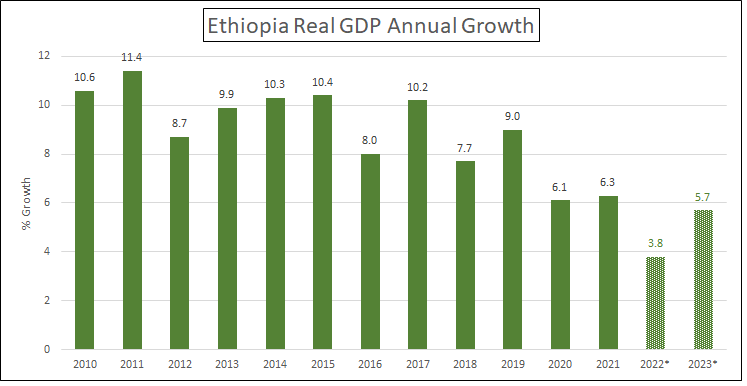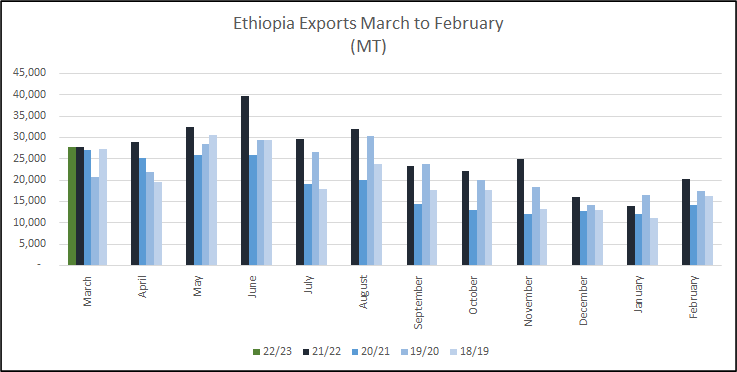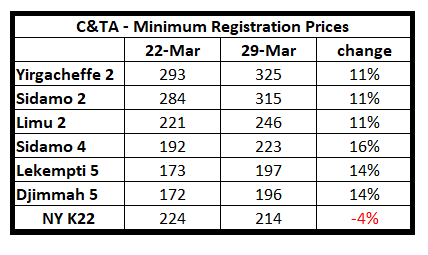We are all aware that shipping has been difficult in the last few months as a direct consequence of the pandemic and due to the more Ethiopian reason of decreased economic activity due to war reducing containerised imports. In the past we have always been able to play one shipping line against another depending on container availability or vessel schedule however, currently all lines are short of equipment (empty containers) and slots on vessels causing inevitable shipment delays. There simply seem to not be enough imports, container availability for exports is very reduced, it will be interesting to see if this tightness will affect the April export figures which we should get in a couple of weeks.
The IMF published this week it’s updated Growth Forecasts for 2022 and 2023 and they paint a grim picture. Actual Economic Growth in 2021 stood at 6.3%, forecast for 2022 is 3.8%, there is an improvement in the 2023 outlook with growth expected to increase to 5.7%. For context the average annual economic growth in Ethiopia between 2000 and 2022 was 8.8%, therefore the current growth forecast for 2022 is 5% lower than the average of the last 22 years. The graph below clearly shows the impact of the pandemic and internal conflict on Economic prosperity on the country.

For a view on the impact of the crisis of the last 2 years on the lives of Ethiopians we attach this short BBC report: https://www.bbc.com/news/av/world-africa-61196572
In a continuation of last week’s slightly bizarre story about Ethiopians queuing outside the Russian Embassy the BCC has more: https://www.bbc.com/news/av/world-africa-61192801
Birr 51.40 = USD 1
Have a good weekend.



